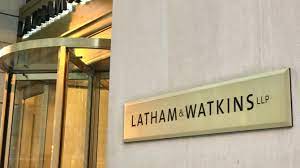By David Young-
An IT employee for a law firm has been barred from working for a law firm in any capacity without the regulator’s permission after he admitted child and extreme pornography charges.
Howard Ellis, a former IT employee for international firm Latham & Watkins LLP for more than a decade, was jailed for 10 months at Woolwich Crown Court on July 4th 2022, after pleading guilty to three counts of making indecent photographs or pseudo-photographs of a child; one count of possessing a prohibited image of a child and one count of possessing extreme pornographic images.
He was also placed on a 10-year certificate of finding sexual harm prevention order.
His position at Latham & Watkins, which included liaising with other employees, on-site facilities activities and serving as a member of the safety and emergency team, was terminated after the firm found out Ellis had been convicted. The firm notified the Solicitors Regulation Authority of Ellis’ conviction.
Ellis agreed to the section 43 order which imposes conditions on his future employment at any firm and controls where he can work. He accepted ‘that by virtue of his conviction, it means that it is undesirable for him to be involved in a legal practice’.
Under the provisions of the statute, n o employee of a solicitor shall employ or remunerate him in connection with the solicitor’s practice and no recognised body shall employ or remunerate him.
Furthermore, no manager or employee of a recognised body shall employ or remunerate him in connection with the business of that body, and no recognised body or manager or employee of such a body shall permit him to be a manager of the body.
The SRA’s Enforcement Strategy and its guidance on how it regulates non-authorised persons, sets out its approach to using section 43 orders to control where a non-authorised person can work.
The SRA said when considering whether a section 43 order is appropriate in this matter, the SRA has taken into account the admissions made by Mr Ellis and the following mitigation which he has put forward by pleading guilty at the earliest opportunity and co-operating with its investigation.
Mr Ellis agree that a section 43 order is appropriate because his employment or remuneration at the Firm means that he was involved in a legal practice he has been convicted of an offence which makes it undesirable for him to be involved in a legal practise.
Mr Ellis’ role was within the facilities department and he had contact with and liaised with other employees at all levels of seniority across the organisation, as a normal part of his day to day role. He would also have had potential contact with clients and other persons who had reason to visit the premises.
Additionally, the SRA said Mr Ellis had access to the Firm’s IT systems, therefore the nature and seriousness of the convictions presents a risk of future damage or harm towards clients of any firm Mr Ellis may go on to work for, employees of any such firm, and the firm itself.
The SRA said: ‘The nature and seriousness of the convictions damages public confidence and trust in the profession.’
It added that Ellis’ role within the facilities department of the firm meant he had contact with employees across the organisation at all levels of seniority, ‘potential’ contact with clients and visitors to the firm’s offices, and access to the firm’s IT systems.
It added: ‘Therefore the nature and seriousness of the convictions presents a risk of future damage or harm towards clients of any firm Mr Ellis may go on to work for, employees of any such firm, and the firm itself.’
Ellis must also pay £300 costs for the SRA investigation.
We have in house lawyers who have to be paid to bring a case before the Solicitors Tribunal, as it is not in every case that an offending lawyer is struck off.
Some criminal convictions don’t require an automatic strike off, so it is legally required for a court to authourize a striking off




